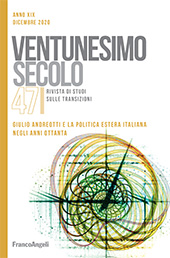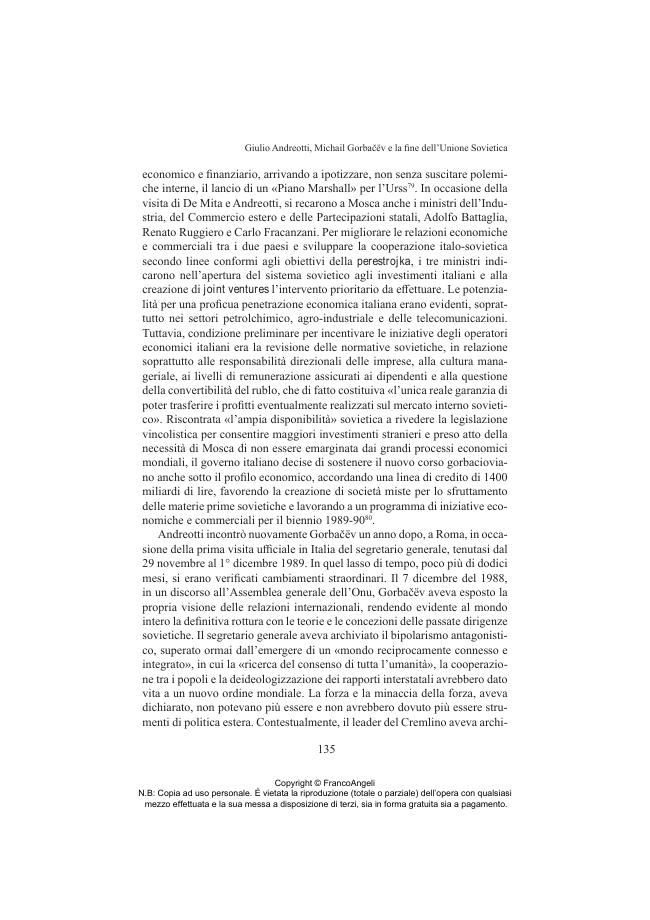Giulio Andreotti, Michail Gorbačëv e la fine dell'Unione Sovietica
118-151 p.
The appointment of Mikhail Gorbachev as general secretary of the Central Committee of the Communist Party of the Soviet Union in March 1985 marked a watershed both in the history of the Ussr, which collapsed a few years later, and in the bipolar world order, which was irreversibly transformed by the consequences of his international initiatives. Gorbachev's rise to power was also an important turning point in bilateral relations between Rome and Moscow. Italian politics, almost in its entirety, from the main ruling party, the Christian Democrats, to the largest opposition party, the Italian Communist Party, welcomed the reformist attempt by the secretary of the Cpsu.
This paper, which is based mainly on the records of the "Soviet Union Series" held in the Archive of Giulio Andreotti, is intended to shed some light on Italian-Soviet relations during the Gorbachev years. At that time, Andreotti played a leading role in the implementation of Italian foreign policy, first as Foreign Minister from 1983 to 1989, and then as President of the Council of Ministers, from 1989 to 1992. He was, therefore, a key figure in the conduct of Italy's foreign policy in the face of Gorbachev's reformist attempt and the following dissolution of the Soviet Union. [Publisher's text].
-
Articoli dello stesso fascicolo (disponibili singolarmente)
-
Informazioni
Codice DOI: 10.3280/XXI2020-047006
ISSN: 1594-3755
MATERIE
PAROLE CHIAVE
- Italian-Soviet Relations, Italian Foreign Policy, Ussr, Cold War, Giulio Andreotti, Mikhail Gorbachev



